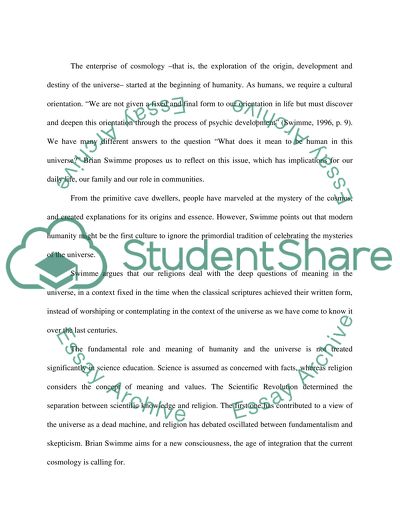Cite this document
(Cosmos in The Hidden Heart of the Cosmos by Swimme Book Report/Review, n.d.)
Cosmos in The Hidden Heart of the Cosmos by Swimme Book Report/Review. Retrieved from https://studentshare.org/science/1539123-personal-reflection-reaction-paper
Cosmos in The Hidden Heart of the Cosmos by Swimme Book Report/Review. Retrieved from https://studentshare.org/science/1539123-personal-reflection-reaction-paper
(Cosmos in The Hidden Heart of the Cosmos by Swimme Book Report/Review)
Cosmos in The Hidden Heart of the Cosmos by Swimme Book Report/Review. https://studentshare.org/science/1539123-personal-reflection-reaction-paper.
Cosmos in The Hidden Heart of the Cosmos by Swimme Book Report/Review. https://studentshare.org/science/1539123-personal-reflection-reaction-paper.
“Cosmos in The Hidden Heart of the Cosmos by Swimme Book Report/Review”, n.d. https://studentshare.org/science/1539123-personal-reflection-reaction-paper.


